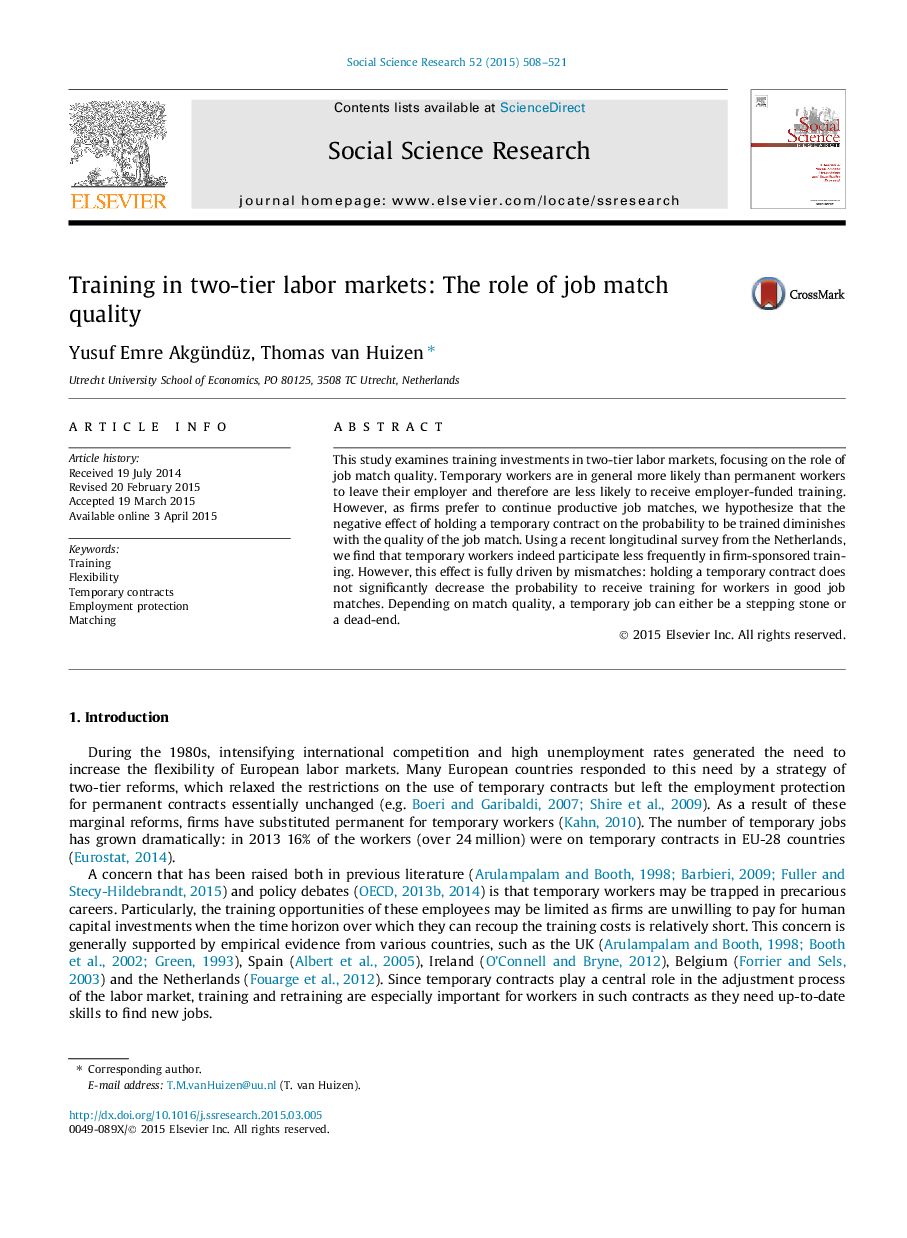| Article ID | Journal | Published Year | Pages | File Type |
|---|---|---|---|---|
| 955715 | Social Science Research | 2015 | 14 Pages |
•This study examines the relation between contract types and firm-sponsored training.•We test whether this relation depends on the worker’s job match quality.•The results show that temporary workers are less likely to receive training.•The negative effect of temporary contracts is fully driven by mismatches.
This study examines training investments in two-tier labor markets, focusing on the role of job match quality. Temporary workers are in general more likely than permanent workers to leave their employer and therefore are less likely to receive employer-funded training. However, as firms prefer to continue productive job matches, we hypothesize that the negative effect of holding a temporary contract on the probability to be trained diminishes with the quality of the job match. Using a recent longitudinal survey from the Netherlands, we find that temporary workers indeed participate less frequently in firm-sponsored training. However, this effect is fully driven by mismatches: holding a temporary contract does not significantly decrease the probability to receive training for workers in good job matches. Depending on match quality, a temporary job can either be a stepping stone or a dead-end.
